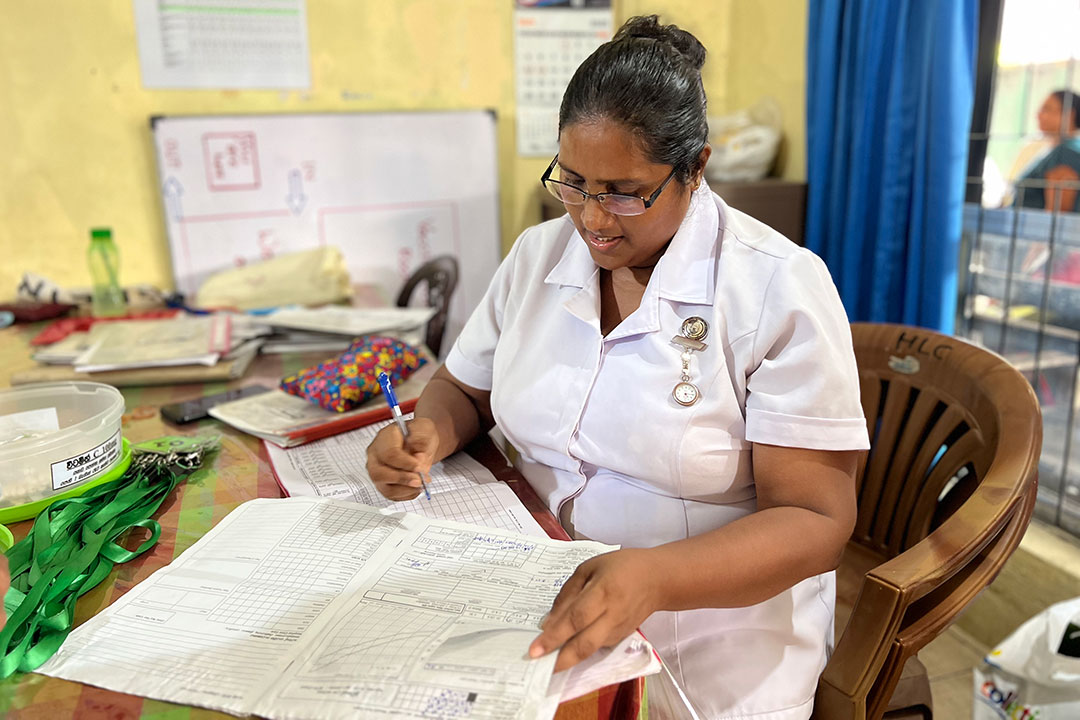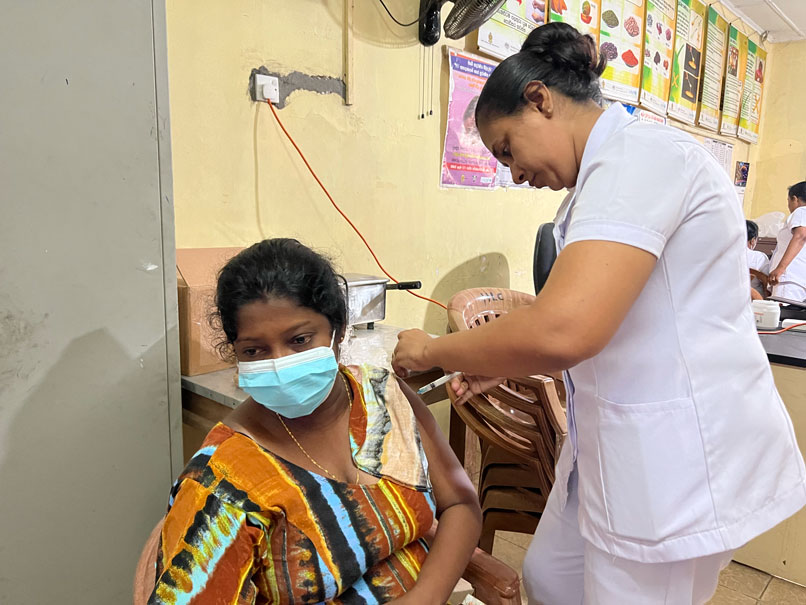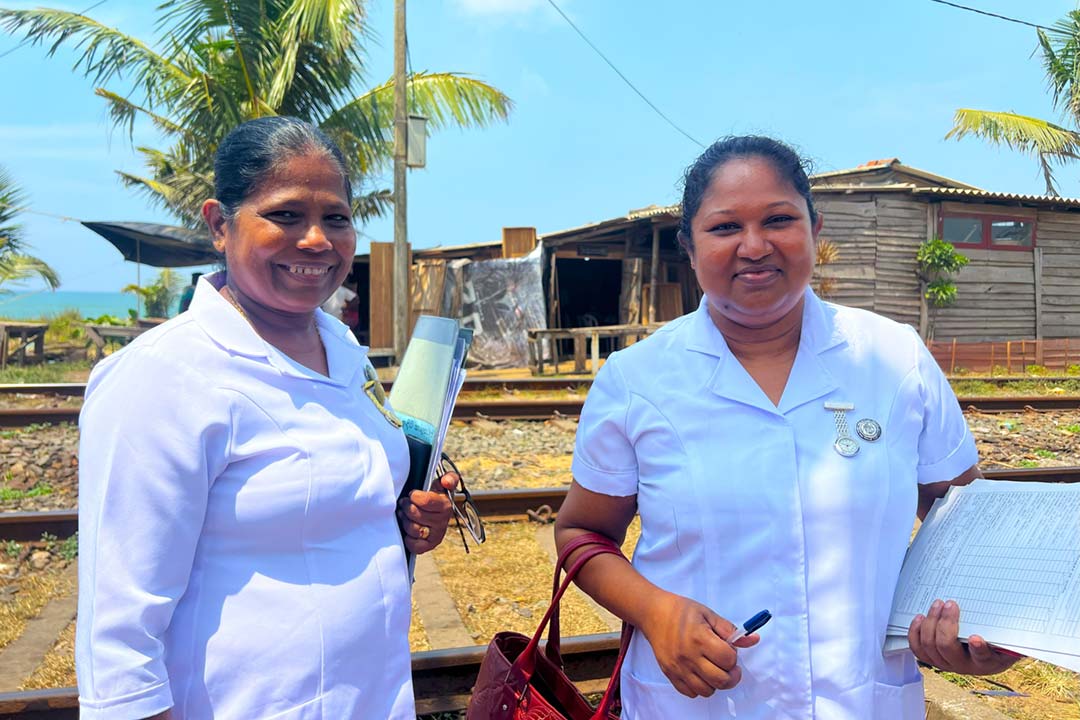In Sri Lanka, health workers go the extra mile to keep sex workers safe
Keeping often-stigmatised sex workers integrated with the country’s successful HIV and syphilis control programmes, depends on ease of access and bonds of trust.
- 14 May 2024
- 5 min read
- by Aanya Wipulasena
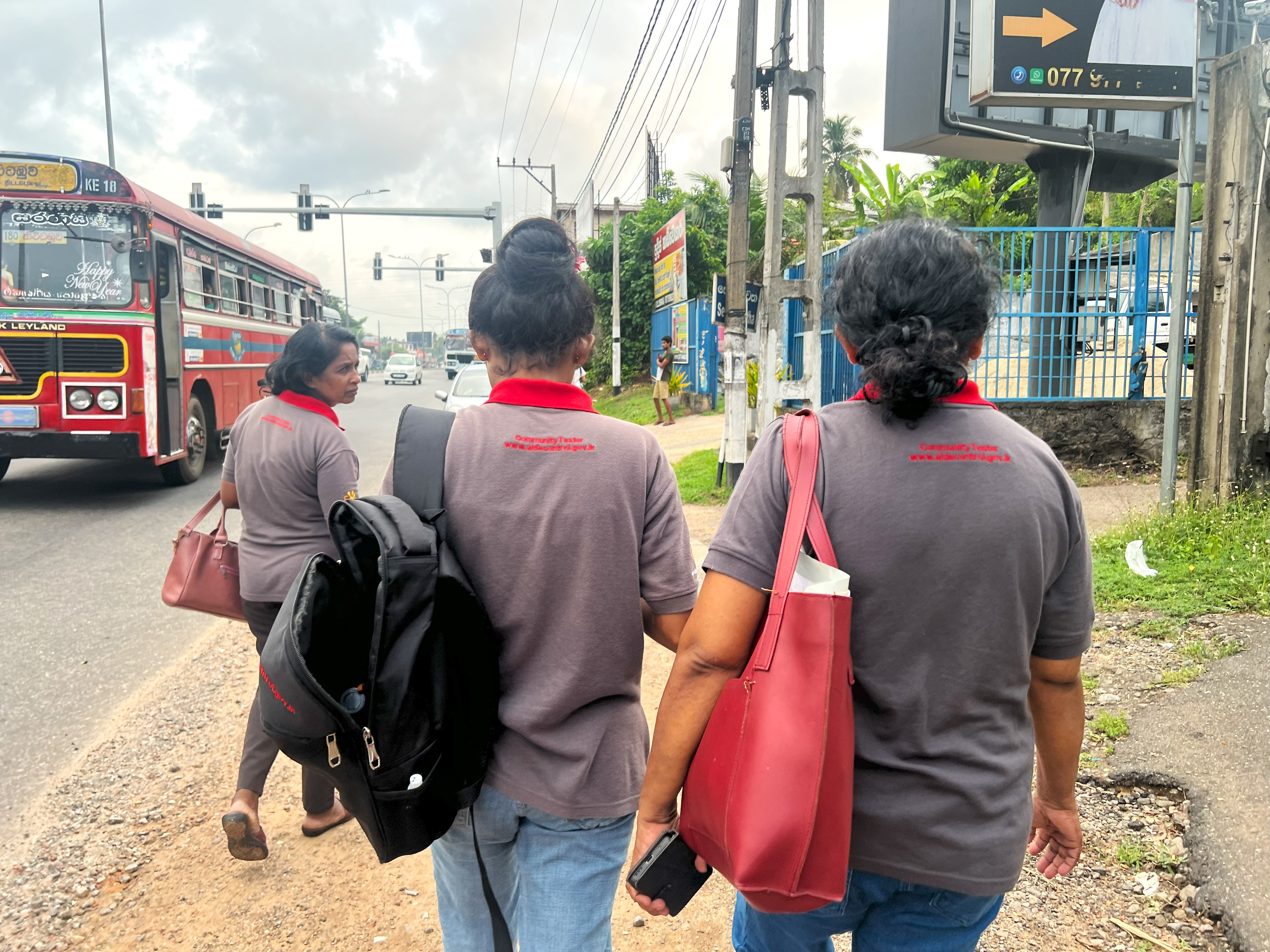
It is late in the afternoon. When the traffic builds up with workers returning home, Samanthi Niroshani and her two colleagues are just starting their main work for the day.
"There are days we do this late into the night," Niroshani says, smiling. But, she adds, that does not bother her, because what she does gives her great satisfaction.
Niroshani and her colleagues, Nalika Amaratunga and Imalsha Prabodani, are outreach workers attached to the Mithuru Mithuro Movement, a non-profit organisation that provides community-based HIV (human immunodeficiency virus) and syphilis testing to sex workers.
"I feel like a mother to them."
– Samanthi Niroshani, health outreach worker with the Mithuru Mithuro Movement
The team visits sex workers in person at least five days a week. Outreach workers educate sex workers on sexually transmitted infections (STIs), on how to protect themselves, provide them with condoms and lubricants, and link them to clinics and services available in the country when needed. Their work is a valuable adjunct to the country's public health projects.
"The same services for everyone"
In 2019, Sri Lanka was validated for the elimination of mother-to-child transmission (MTCT) of HIV and syphilis. According to the World Health Organization, the island nation is the third country in the South-East Asian Region to achieve this milestone.
One of the major components of Sri Lanka's elaborate national programme for the prevention of HIV and other STIs is to reach key populations that are at high risk, and isolated.
The National STD/AIDS Control Programme (NSACP), run by the country's Ministry of Health with the help of the Global Fund, leads key population interventions.
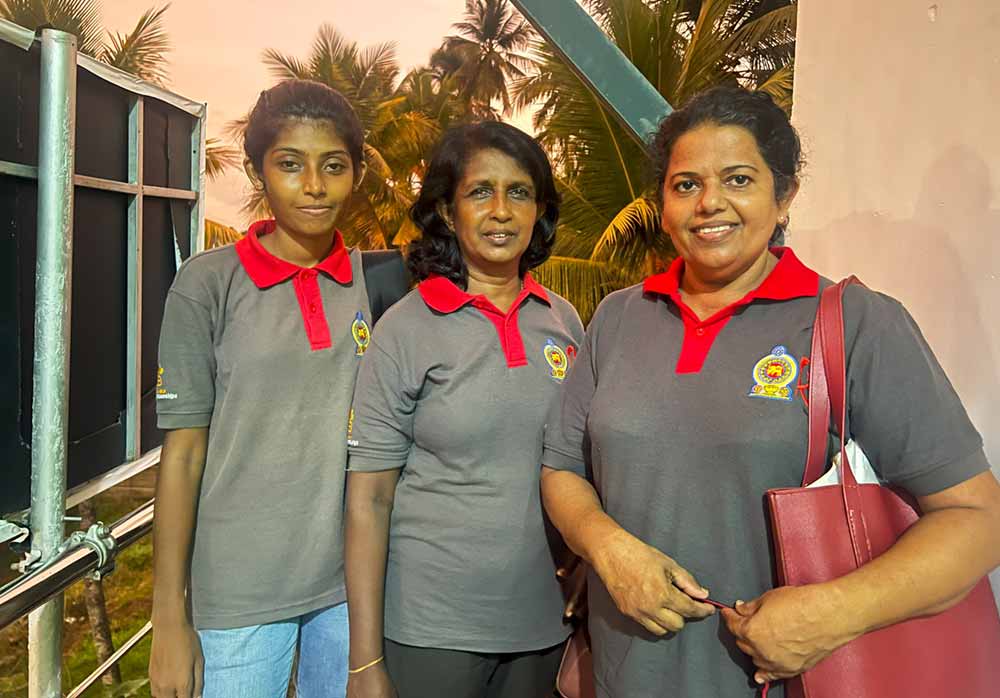
Credit: Aanya Wipulasena
"We are running [the programme] throughout the country. In certain districts where the key population is moderate in number, and where the HIV/STI services are required, and a community-led programme is a requirement, we have this NGO/CBO [non-governmental organisation/community-based organisations] supported programme," Dr Sathya Herath, National Consultant for the NSACP's Key Population Programme, told VaccinesWork.
Dr Herath said the Family Planning Association, an NGO, was selected as a sub-recipient of the Global Fund grant, which works with other organisations to do the ground-level work and reach the ideal key population. The Mithuru Mithuro Movement is one such organisation.
However, this work can be challenging in the local context because of the stigma attached to sex work. Dr Herath said one of the greatest challenges they face is related to the criminalisation of some activities linked to sex work, such as soliciting and brothel-keeping, which isolate and marginalise some sex workers.
"We provide the same services to everyone," she said. "We have laws that hinder some key populations from taking normal services."
Winning trust
After advocating and creating awareness among policymakers, the police and other stakeholders, the health workers now take their knowledge and services to the ground level where it is much needed.
Outreach worker Niroshani said she faced another challenge within the community when she started to work.
"We needed to win the trust of the sex workers, which was not easy. There were times we visited the same place about five times and then started doing the tests on the sixth visit. It takes a lot of effort," she said.
Have you read?
Now, sex workers or their employers who have heard about the programme request Niroshani and the team to visit them, and volunteer to do the tests themselves. This makes the team very happy, because it shows they are doing their work right.
"Some girls don't even know what HIV is. They have no idea what diseases they could get in this line of work," Niroshani reflects.
There have been many occasions on which Niroshani has sat with the women and given them life advice, in addition to awareness about protection. "I feel like a mother to them," she said.
"We respect them, and they respect us"
Nilu Kumari* has worked as a sex worker for years. She is now looking after several other women who are also in the same line of work. She says the services provided by the outreach workers are critical to her community.
"I thought I would get arrested. I worry about police raids. I didn’t know that there was a service like this. I don’t feel comfortable going to a clinic for tests because I worry about what people will think about me. Now we can do the tests somewhere we feel safe."
– Chamani Madushika*, sex worker
"There are girls who come from rural villages. Most of them don't know the risks attached to sex work. They don't know where to go to do these tests. When this service is brought to them, and not the other way around, there is a higher possibility for them to get the tests done, keeping them protected," Kumari explained.
She also said that the outreach workers are always very kind and friendly, which is fundamental to their programme's success.
"We respect them, and they respect us. So, the girls trust them and value their services," she said.
Chamani Madushika* is new to the job. When the outreach workers visited her workplace first, she was frightened.
"I thought I would get arrested. I worry about police raids. I didn't know that there was a service like this. I don't feel comfortable going to a clinic for tests because I worry about what people will think about me. Now we can do the tests somewhere we feel safe," she said.
Guarding against mother-to-child transmission
Elimination of mother-to-child transmission (MTCT) of HIV and syphilis is a critical component of the country's antenatal programme, through which all pregnant mothers are screened.
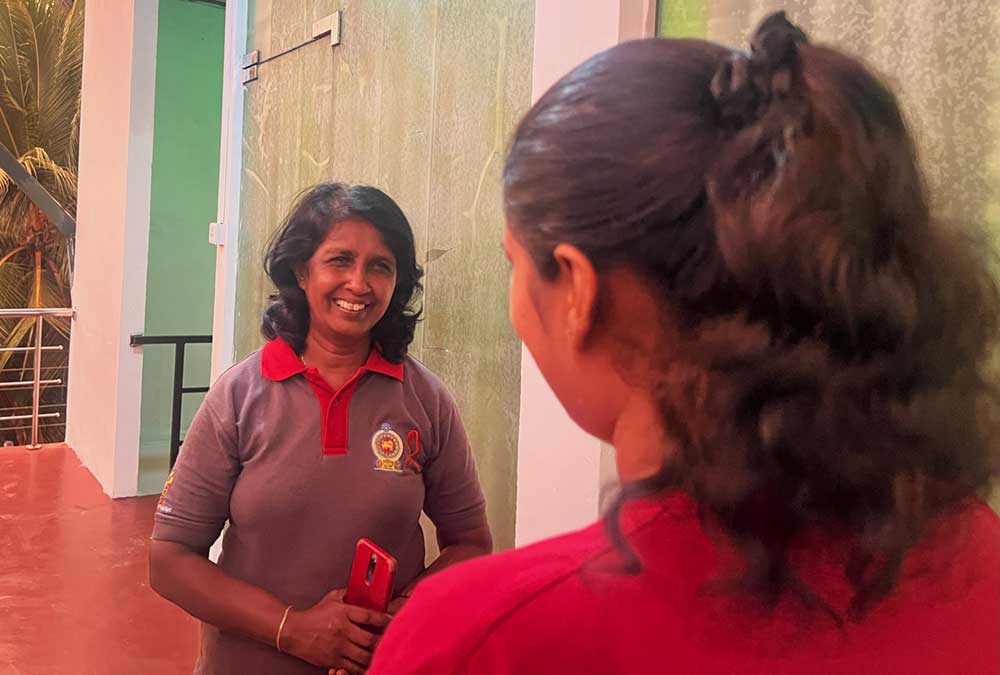
Credit: Aanya Wipulasena
Dr Herath said that preparation is underway to include hepatitis B in the Key Population Program to eliminate MTCT.
However, it is challenging. "We need to start (the process) again – documentation, test kit procurement, training and education. All that we have to start. It is not that easy. However, we have taken some steps in planning such an intervention," she said.
* Names have been changed
